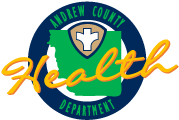ANDREW COUNTY ORDINANCE ON EMERGENCY MANAGEMENT IN RESPONSE TO COVID-19 PANDEMIC
An ordinance of emergency management in response to COVID-19 pandemic that jeopardizes the safety and welfare of the inhabitants of Andrew County, Missouri.
WHEREAS, the Honorable Governor of the State of Missouri enacted Executive Order 20-02 pursuant to the authority granted under section 44.100 and 44.110, RSMo., to protect the safety and welfare of the inhabitant of the State of Missouri in relation to the COVID-19 pandemic on or about March 13, 2020;
WHEREAS, the reasons the Honorable Governor of the State of Missouri enacted Executive Order 20-02 were detailed in that Order, including the COVID-19 pandemic endangering the safety and welfare of the inhabitants of the State of Missouri, is hereby adopted as part of this Ordinance as if fully set forth herein;
WHEREAS, Randall W. Williams, MD, FACOG, Director of the Department of Health and Senior Services, finding it necessary to protect public health and prevent the further spread of COVID-19, pursuant to the authority granted under section 192.020, RSMo, and 19 CSR 20-20.040 enacted an order to go into effect on March 21, 2020 and again on April 3 & 6, 2020, ordering all citizens to stay at home;
WHEREAS,the Director’s Orders dated March 21, 2020 and April 6, 2020 are adopted as part of this Ordinance as if fully set forth herein;
WHEREAS, Andrew County, Missouri, is recognized as a third (3rd) class county within the State of Missouri pursuant to sections 46.123, 48.010, and 48.020, RSMo., as well as Article Six (6) of the Missouri Constitution, as a legal subdivision of the State of Missouri;
WHEREAS, Andrew County, Missouri, is a county without a charter form of government with governing authority to adopt ordinances or resolutions relating to affairs regarding emergency management, specifically relating to the actual occurrence of a natural or man-made disaster of major proportions within the county that jeopardizes the safety and welfare of the inhabitant within the County pursuant to authority of section 49.650, RsMO.;
WHEREAS, Andrew County, Missouri, enacts this Ordinance narrowly tailored to protect the safety and welfare of inhabitants of Andrew County, Missouri; and
WHEREAS, Andrew County, Missouri, authorizes the Andrew County Sheriff, or his deputy officers, to enforce the provisions of this Ordinance subject to the laws of the State of Missouri;
WHEREAS, the COVID-19 virus spreads between people who are in close contact with one another through respiratory droplets, and
WHEREAS, as numerous cases of COVID-19 illness and evidence of community transmission have been identified in jurisdictions bordering Andrew County, and
WHEREAS, the Andrew County Health Department does endorse, support and are actively participating in this order, and
WHEREAS, the proclamation declaring a State of Emergency currently in effect authorizes the Presiding Commissioner to take all necessary action to protect Andrew County residents;
NOW, THEREFORE, BE IT ORDERED BY THIS HONORABLE COMMISSION OF ANDREW COUNTY, MISSOURI, AS FOLLOWS:
Section 1.
That to the maximum extent possible, citizens of Andrew County, Missouri, stay at home, and avoid public places except when necessary to perform essential duties or needs.
Section 2.
Any intentional gathering of more than (10) people in a single space or room is prohibited. Nothing in this Order prohibits the gathering of members of a household or residence of individuals who reside in such residence.
Section 3.
That for the purposes of this Ordinance the term “Essential Businesses” shall mean businesses or organizations performing functions identified in the “Guidance on Essential Critical Infrastructure Workforce: Ensuring Community and National Resilience COVID-19 Response” Version 2.0 (March 28, 2020), and subsequent versions that may be issued.
Section 4.
That due to unique characteristics and risks associated with transmission dynamics, the likely spread of COVID-19 based on factors of social distancing, the clinical severity of COVID-19, the lack of vaccine or antivirals as treatment options, crowd density, the inability to ensure social distancing to prevent close contact among members of the public, the following shall apply within Andrew County, Missouri for the duration of this order.
- Non-essential business. As defined herein, essential-businesses shall make efforts to perform only activities that qualify the business as such unless they are capable of providing non-essential business in accordance with (1).
- Any business that opens would need to provide services via curbside pickup while maintaining 6ft. or more social distancing.
- Salons, tattoo parlors, and close-contact services: No business or person shall provide services that require contact between a person providing the service and the customer, unless the service is for necessary medical treatment that has been ordered by a physician and deemed essential.
- Essential businesses. As defined herein, essential-businesses shall make efforts to perform only activities that qualify the business as such unless they are capable of providing non-essential business in accordance with (1).
- Essential Businesses and organizations shall continue operations based on the state occupancy formula issued in the Missouri Stay at Home Order issued extended April 6, 2020.
- Essential Businesses shall assure that unless the specific job duties being performed require less than 6 ft. social distancing all people remain separated by physical space of at least six (6) ft.
- Gas stations and Convenience stores: No more than ten (10) people including employees, vendors, and customers may be on the retail sales floor or any un-walled area connected to the retail sales floor, of a gas station or convenience store at any one time. All persons shall maintain 6 foot separation.
- Restaurants, Bars, and Food Establishments: Shall continue to operate with no indoor dining and only the use of drive-thru, pickup, or delivery while maintaining 6 ft. social distancing and in accordance with state guidelines.
- Recreation Type Business
- All indoor recreation shall remain closed to the public.
- All recreation that does occur shall not be in groups of 10 or more and must maintain social distancing of 6 ft.
- Individual sports including but not limited to: golf, running, cycling, etc. shall be allowed to reopen under approved guidelines where appropriate.
- Group sports to include but not limited to tennis, basketball, football, soccer, baseball, frisbee golf, etc. shall remain closed due to the risk of close contact and shared equipment.
Section 5.
People shall not visit nursing homes, long-term care facilities, retirement homes, or assisted living homes unless to provide critical assistance and in accordance with facility guidelines.
Section 6.
All places of public amusement, whether indoors or outdoors, including but not limited to, locations with amusement rides, carnivals, swimming pools, museums, fairs, children’s play centers, roller skating rinks, fitness centers, and athletic clubs shall be closed to the public.
Section 7.
All public parks and outdoor recreation areas are encouraged to remain open. Because playgrounds may increase the spread of COVID-19, all playgrounds shall be closed with appropriate notices posted.
Section 8.
This Ordinance does not prohibit schools from providing child care and Food and Nutritional Services for those children that qualify. Teachers and staff may enter the building as long as they follow directives of this Ordinance.
Section 9.
This Ordinance does not prohibit people from visiting grocery stores, merchants, gas stations, parks, banks, government, or their place of employment, so long as necessary precautions are taken and maintained to reduce transmission of COVID-19, including maintaining at least six (6) feet of distance between all individuals that are not family members.
Section 10.
For offices and workplaces that remain open, individuals shall practice good hygiene and, where feasible, work from home to achieve optimum isolation from COVID-19. The more that people reduce their public contact, the sooner COVID-19 will be contained and the sooner this Ordinance will expire.
Section 11.
The Andrew County Sheriff, and/or his deputy law enforcement officers, the personnel of the Andrew County Sheriff’s Office, the Andrew County Prosecuting Attorney, the personnel of the Andrew County Prosecuting Attorney’s offices, Andrew County Commission, Andrew County Health Department personnel, and any other county employee or agent shall be immune from personal liability for enforcing the provisions of this Ordinance subject to the laws of the State of Missouri.
Section 12.
A violation of this Ordinance shall be punished by a fine not to exceed five-hundred dollars and zero cents ($500.00) per day of violation. For purposes of calculating the penalty for violating this Ordinance, a month constitutes thirty (30) days.
Section 13.
This Ordinance shall immediately be in full force and effect on the date of its passage by the Honorable Andrew County Commission.
Section 14.
This Ordinance will remain in effect until 11:59 pm May 3, 2020.
SO ORDERED, PASSED, AND ADOPTED BY UNANIMOUS DECISION THIS 23rd DAY OF APRIL 2020, AT 3:00 P.M.
Honorable Bob Caldwell, Presiding Commissioner
Honorable Gary Baumann West District Commissioner
Honorable Fritz Hegeman, East District Commissioner
Honorable Sarah Miller, Clerk




